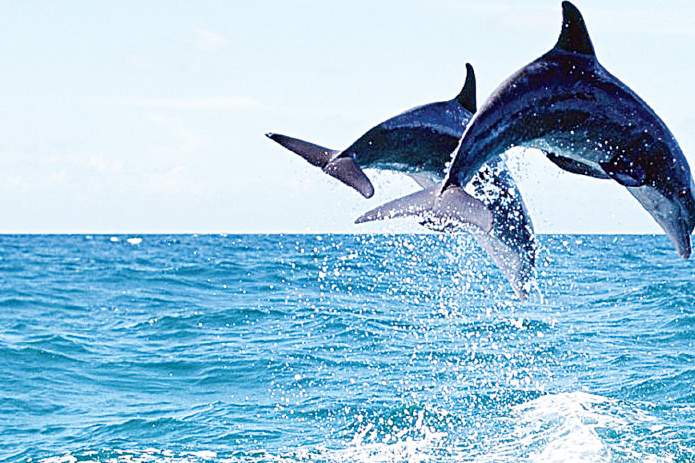LONDON : Whales and dolphins live in tightly-knit social groups, have complex relationships, communicate with each other and even have regional dialects – just like human societies – a study has found.
The study is first of its kind to create a large dataset of cetacean brain size and social behaviours.
Researchers, including those from University of British Columbia in Canada and The London School of Economics and Political Science (LSE) in the UK, compiled information on 90 different species of dolphins, whales and porpoises.
It found overwhelming evidence that Cetaceans have sophisticated social and cooperative behaviour traits, similar to many found in human culture.
The study, published in the journal Nature Ecology and Evolution, demonstrates that these societal and cultural characteristics are linked with brain size and brain expansion – also known as encephalisation.
The list of behavioural similarities includes many traits shared with humans and other primates, such as complex alliance relationships and working together for mutual benefit.
Researchers also found social transfer of hunting techniques – teaching each other how to hunt and using tools cooperative hunting.
The Cetaceans also exhibit complex vocalisations, including regional group dialects – vocal mimicry and ‘signature whistles’ unique to individuals. They also looking after youngsters that are not their own.
“As humans, our ability to socially interact and cultivate relationships has allowed us to colonise almost every ecosystem and environment on the planet,” said Susanne Shultz, from University of Manchester in the UK.
“We know whales and dolphins also have exceptionally large and anatomically sophisticated brains and, therefore, have created a similar marine based culture,” Shultz said.
“That means the apparent co-evolution of brains, social structure, and behavioural richness of marine mammals provides a unique and striking parallel to the large brains and hyper- sociality of humans and other primates on land,” she said.
The team used the dataset to test the social brain hypothesis (SBH) and cultural brain hypothesis (CBH).
The SBH and CBH are evolutionary theories originally developed to explain large brains in primates and land mammals.
They argue that large brains are an evolutionary response to complex and information-rich social environments.
However, this is the first time these hypotheses have been applied to ‘intelligent’ marine mammals on such a large scale.
“Cetaceans have many complex social behaviours that are similar to humans and other primates,” said Kieran Fox, at Stanford University in the US.
They, however, have different brain structures from us, leading some researchers to argue that whales and dolphins could not achieve higher cognitive and social skills. I think our research shows that this is clearly not the case,” said Fox. (AGENCIES)


